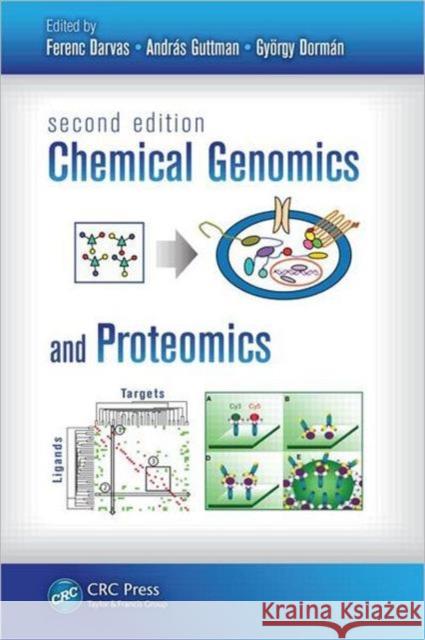Chemical Genomics and Proteomics » książka
Chemical Genomics and Proteomics
ISBN-13: 9781439830529 / Angielski / Twarda / 2013 / 243 str.
Chemical Genomics and Proteomics
ISBN-13: 9781439830529 / Angielski / Twarda / 2013 / 243 str.
(netto: 929,10 VAT: 5%)
Najniższa cena z 30 dni: 906,73
ok. 16-18 dni roboczych.
Darmowa dostawa!
Since the publication of the pioneering first edition of Chemical Genomics and Proteomics more than seven years ago, the area of chemical genomics has rapidly expanded and diversified to numerous novel methods and subdisciplines, such as chemical glycomics and lipidomics. This second edition has been updated to uniquely reflect this interdisciplinary feature as well as the remarkable developments that have occurred. The new edition also covers innovative applications from cell biology to drug discovery to, more recently, clinical diagnostics and medical practice, which utilize the concepts of chemical genomics.
The text provides an overview of the strategies and methodologies of chemical genomics, focusing on emerging technologies and recent applications in the areas of combination chemical genetics, toxicogenomics, drug chemical genomics and proteomics, and orthogonal chemical genetics. It describes the development and application of novel analytical methods used in lipodomics, such as steroidomics. The book also discusses biomarker discovery applications of microarray technologies using DNA, RNA, and protein and glycan arrays. Chapters cover further applications of biomolecular biomarkers for disease diagnosis, in small molecule drug R&D, and during therapeutic use of medicines. These include prognostic, disease specific, response (surrogate), and toxicity biomarkers.
In addition, the text explores the principles of contemporary systems biology and genomics in experimental medicine a new paradigm that demonstrates a network-oriented view and advanced statistical and informatics data management, opening the way toward personalized medicine. Finally, various in silico chemogenomics approaches are addressed for predicting binding of drug candidates to undesirable targets, which would help in designing better clinical candidates with fewer side effects. This new edition benefits a broad range of readers from industrial and academic researchers in drug discovery, medicinal chemistry, and molecular and cell biology to physicians in clinical diagnostics and students in related fields of study."











